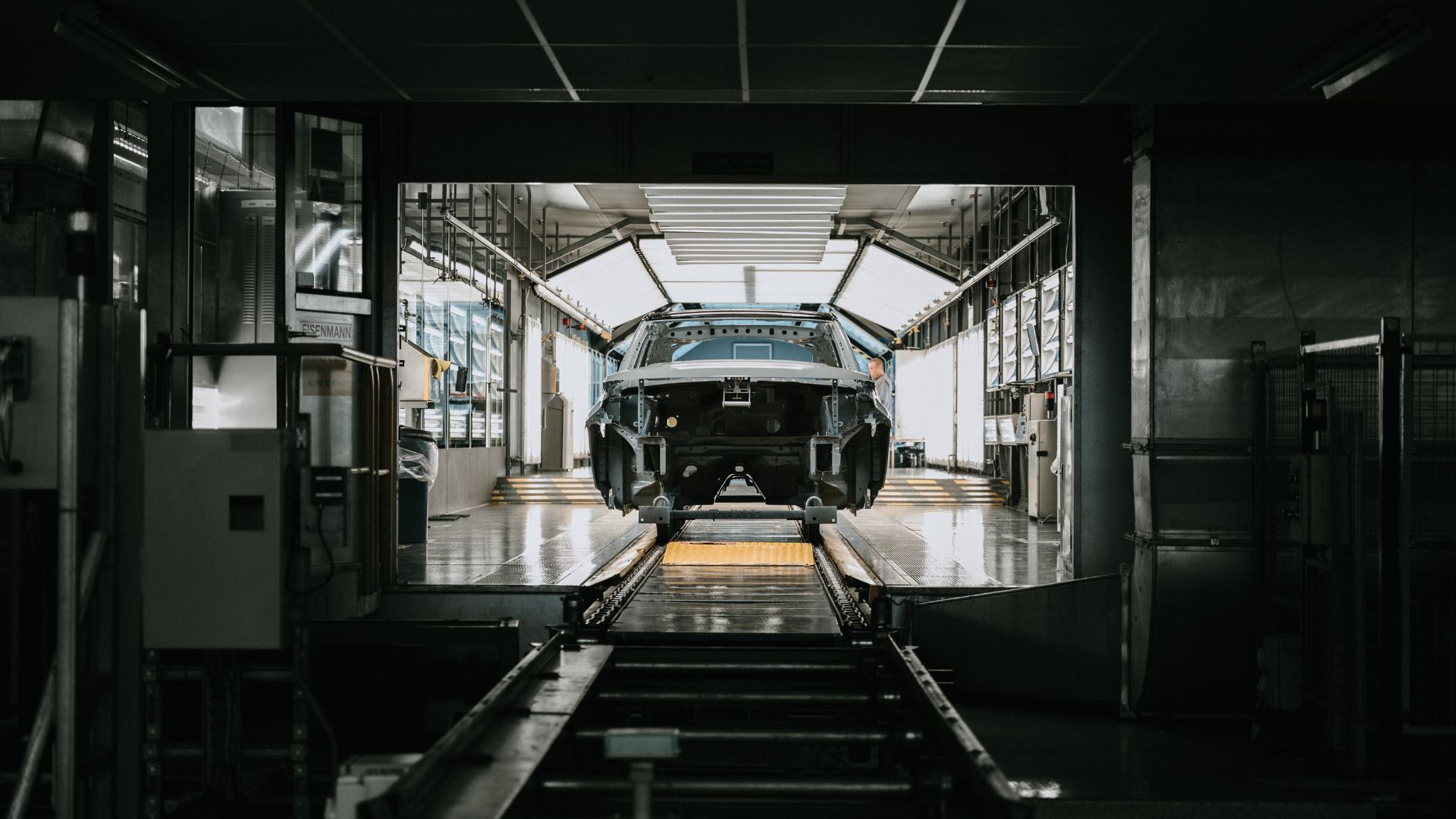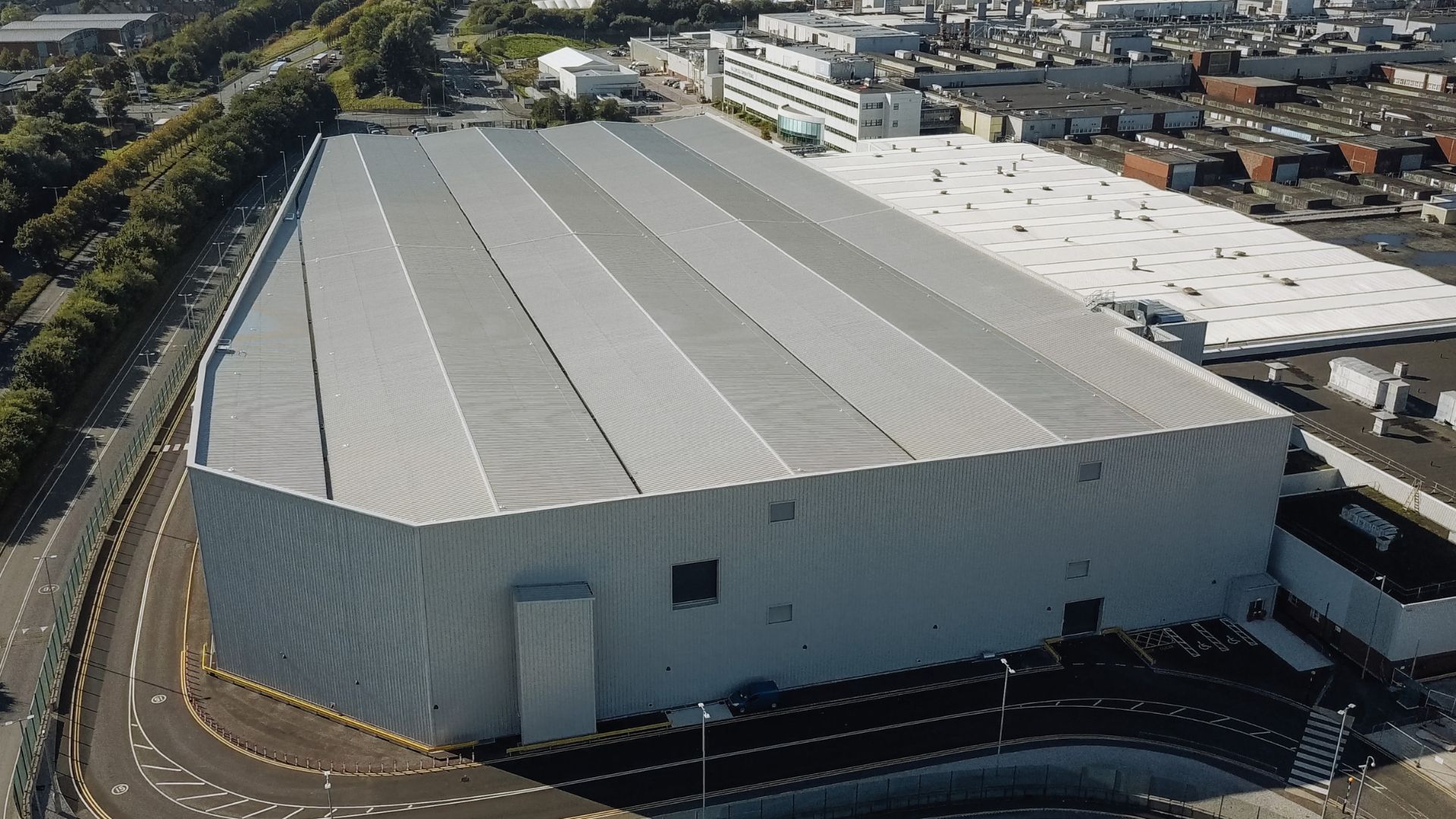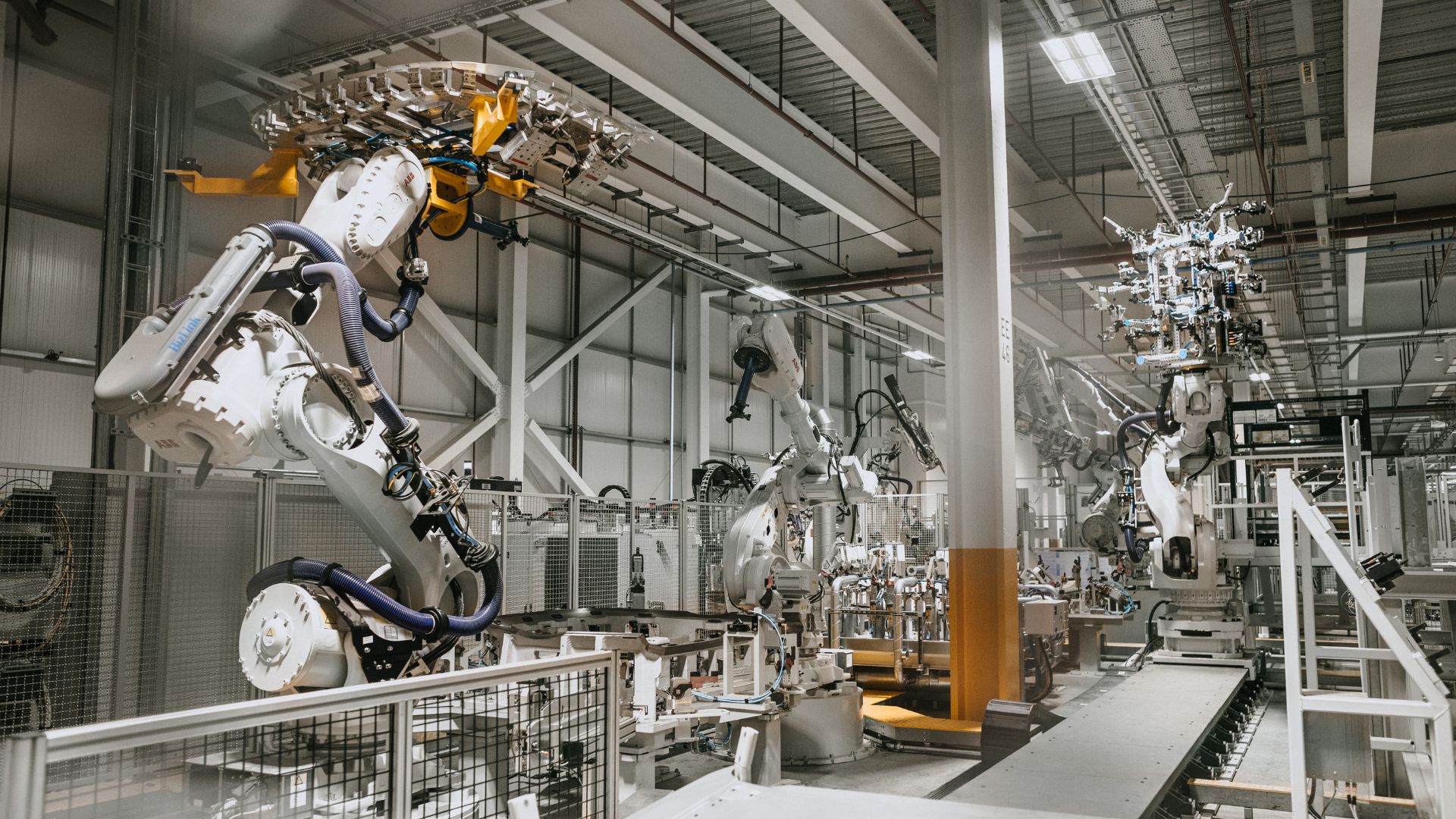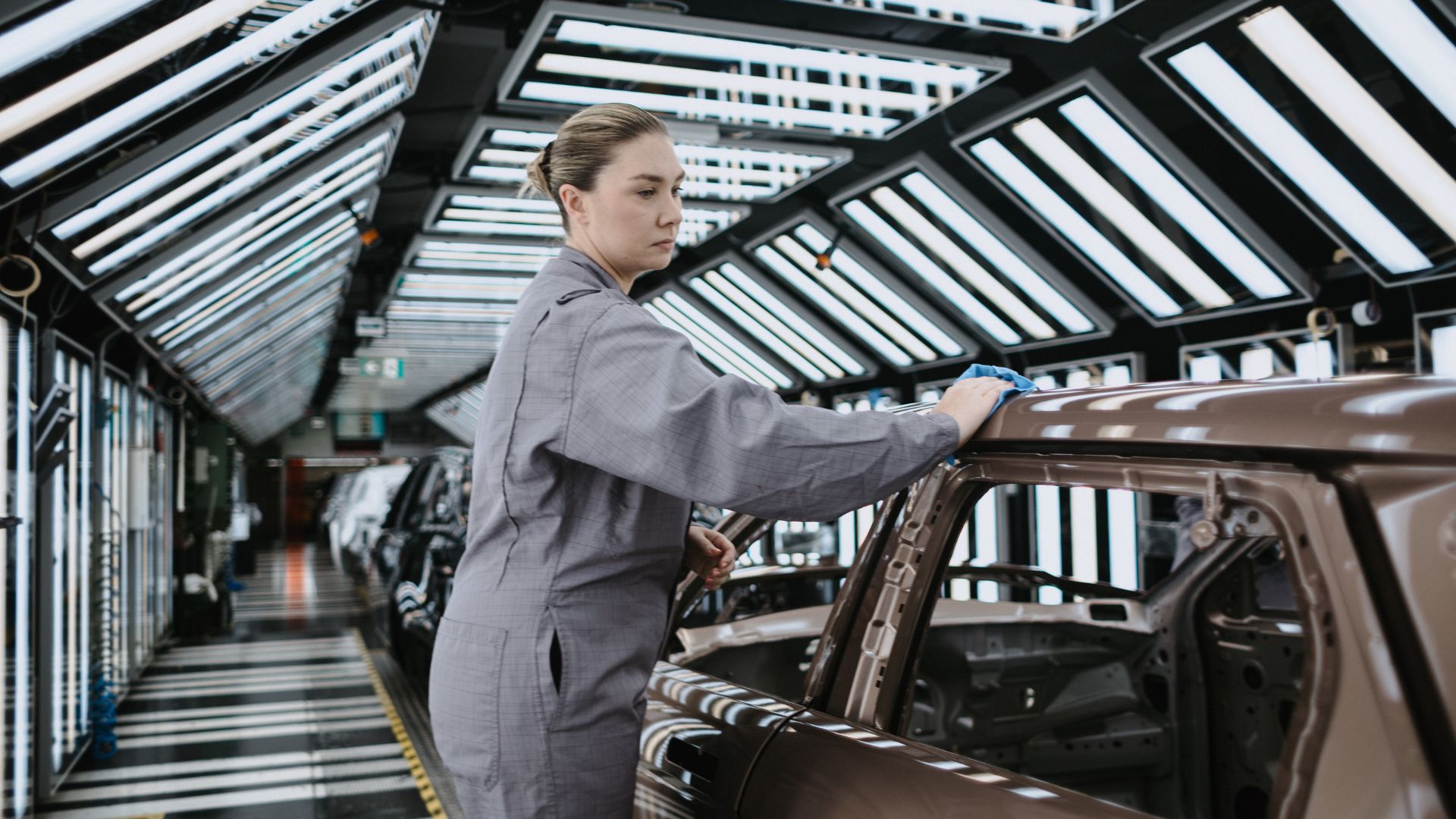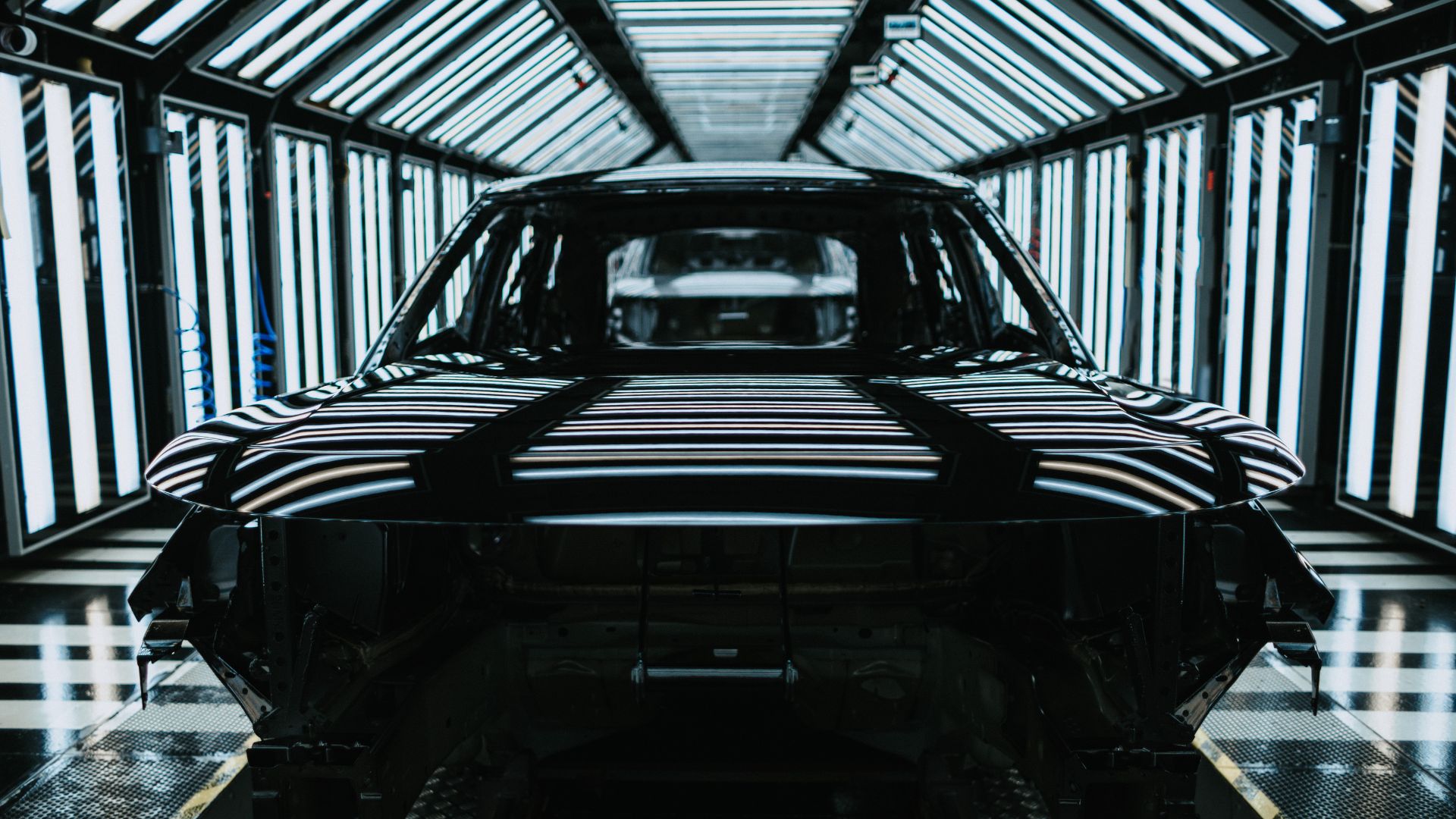JLR’s historic Halewood facility in Merseyside, originally built in 1962 for the production of the Ford Anglia, is now receiving a £500 million makeover to support the production of electric vehicles alongside the existing combustion and hybrid vehicles. £250 million has already been invested over the last year resulting in a 32,364 sqm expansion of the Halewood facility to house and produce JLR’s upcoming medium-sized electric luxury SUVs on the new Electric Modular Architecture (EMA) platform.
JLR aims to create the ‘factory of the future’ with the modified Halewood facility by incorporating technologies such as new EV build lines which increases the production line’s length from 4 km to 6 km to accommodate battery fitment, over 750 autonomous robots which also include 40 New Autonomous Mobile Robots designed to assist technicians on the installation of high-voltage batteries and new Advanced Driver Assistance System (ADAS) calibration rigs that are capable of measuring ADAS responsiveness to ensure safest level of calibration for future autonomous driving.
Additionally, the body shop receives a boost in production capability to produce 500 vehicle bodies per day. The vehicle build stations are now larger in size to allow the bigger proportioned EMA electric vehicles. Increased demand for contrast roofs has influenced JLR to incorporate more ovens and conveyors in the 1.4km paint shop. Installation of laser alignment technology and the latest cloud-based digital plant management systems ensures perfect part fitment and optimised production supervision respectively.
As part of JLR’s Future Skills Programme, £20 million is invested each year towards upskilling employees and aiding them gain vital skills in new systems, and technologies. Furthermore, JLR is opening a new training and development centre within the modified Halewood facility where technicians get trained on vehicles at various cycles of the production cycle with special emphasis on High Voltage Training (HVT) involving battery assembly processes.
JLR aims to reach carbon net zero by 2039 and it aims to reach there by efficiently utilising renewable energy in its new facility. Plans are laid to install 18,000 photovoltaic panels that can produce up to 10 per cent of the site’s energy consumption.
Barbara Bergmeier, Executive Director, Industrial Operations said: ‘’Halewood has been the heart and soul of JLR in the Northwest of England for well over two decades, producing vehicles such as the Range Rover Evoque and Discovery Sport. “Halewood will be our first all-electric production facility, and it is a testament to the brilliant efforts by our teams and suppliers who have worked together to equip the plant with the technology needed to deliver our world class luxury electric vehicles.’’

